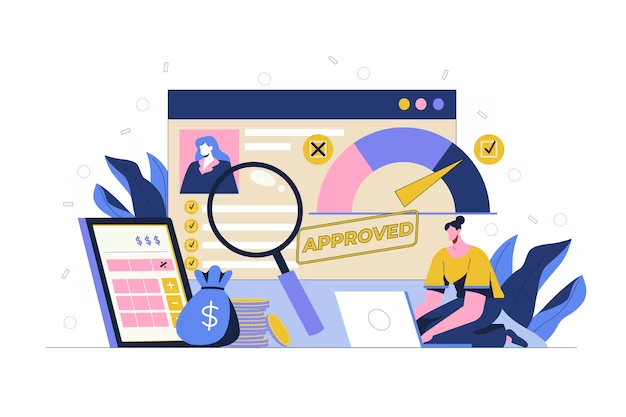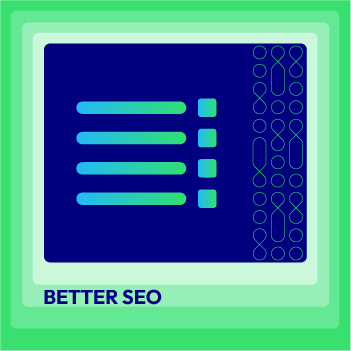How to do On-page SEO for Magento 2?
Summer Nguyen | 06-22-2017


The Most Popular Extension Builder for Magento 2
With a big catalog of 224+ extensions for your online store
On site SEO is the process of optimizing factors on a website to both search engines and users. From that, your website can be ranked higher and earn more traffic from search engines. In essence, on-site SEO is what you have to do so that search engines can understand the content and structure of your website. The more information search engines crawl your site, the more chances your website can be indexed and ranked higher. Billions of unexpected things can occur on your website if you don’t check the elements on-site regularly.
Without further ado, let’s explore the importance and critical factors in On-site SEO.
Let’s get started!
What Is On-Page SEO?
On-page SEO is the process of optimizing factors on a website to both search engines and users. This involves correct keyword utilization, external and internal links, along with content quality and consistency.
From that, your website can be ranked higher and earn more traffic from search engines. In essence, on-page SEO is what you have to do so that search engines can understand the content and structure of your website. The more information search engines crawl your site, the more chances your website can be indexed and ranked higher. Billions of unexpected things can occur on your website if you don’t check the elements on-page regularly.
Read more:
- Shopify SEO Tutorial 2023: A-Z Guide to Rank #1 [PDF CHECKLIST INCLUDED]
- 15 Important Strategies to Improve Shopify SEO for Your Store

Why Is On-Page SEO on Magento Important?
The Importance of On-Page SEO on Magento
Search Engine Visibility
On-page SEO ensures that individual product pages and category pages are optimized with relevant keywords, making it easier for search engines to understand the content and rank the pages appropriately.
Keyword Optimization
By strategically optimizing product descriptions, meta titles, meta descriptions, and other on-page elements, Magento websites can target specific keywords relevant to their products. This helps attract users searching for those terms on search engines.
Mobile Optimization
With an increasing number of users accessing e-commerce sites on mobile devices, on-page SEO on Magento includes ensuring that the website is mobile-friendly. This is not only crucial for user experience but also for search engine rankings, as mobile-friendliness is a factor in search algorithms.

Rich Snippets and Schema Markup
Implementation of schema markup on product pages can enhance the display of rich snippets in search results, providing additional information to users and increasing the likelihood of click-throughs.
Content Quality and Relevance
On-page SEO encourages the creation of high-quality, relevant content that aligns with user intent. This not only satisfies users but also signals to search engines that the content is valuable and worthy of higher rankings.
Customizability and personalization
This provides a lot of headroom for optimization and customization. That is why it is a crucial element to use for On-site SEO purposes. By using a Magento SEO audit checklist, you can ensure that your website is fully optimized for search engines, improving your website’s visibility and search engine rankings.
Benefits of On-Page SEO You Should Know About
-
Enhanced Search Engine Rankings: On-page SEO helps improve the ranking of your web pages in search engine results, increasing visibility to users searching for relevant information.
-
Increased Organic Traffic: By optimizing content and structure, on-page SEO attracts more organic traffic to your website, reducing reliance on paid advertising.
-
Improved User Experience: On-page optimization enhances the overall user experience by making content more accessible, readable, and relevant, leading to lower bounce rates and higher engagement.

-
Targeted Keyword Optimization: Proper keyword optimization in titles, meta tags, and content ensures that your pages rank for specific search queries, reaching your target audience more effectively.
-
Competitive Edge: Websites with strong on-page SEO gain a competitive advantage by providing search engines with well-optimized, authoritative, and user-friendly content.
-
Adaptability to Algorithm Changes: Following on-page SEO best practices makes your website adaptable to changes in search engine algorithms, ensuring sustained visibility despite updates.
-
Effective Local SEO: On-page SEO can be tailored for local audiences, optimizing content for location-specific search terms, which is crucial for businesses targeting local markets.
Key On-Page SEO Elements for Magento
Domain
-
Keywords in Domain: Selecting a domain with relevant keywords is vital for SEO. It helps users find your website when they search for information related to your content. Incorporating keywords into the domain also aids in defining the website’s purpose and content focus.
-
Brand-oriented Domain: Opting for a domain that aligns with your brand is beneficial for SEO. A brand-oriented domain assists in brand recognition, making it easier for customers to identify and remember your products or company. For instance, having a domain like https://mageseoextension.com is brand-centric and provides clarity.
-
High PageRank: The PageRank of your domain reflects its recognition and popularity. A higher PageRank suggests that your site is well-known and receives substantial traffic. This recognition can simplify the SEO process, making it more efficient and requiring less time and effort.

Hosting
Quality Hosting: Hosting is akin to the library where your website’s content is stored. Opt for a high-quality hosting service with a robust server and ample bandwidth. Quality hosting ensures swift accessibility, contributing to faster page load times. Fast-loading pages enhance user experience and positively impact search engine rankings.
Hreflang
-
Language Declaration: Hreflang is a metadata tag that aids search engines in understanding the language in which a website’s content is written. By declaring language preferences, Google can better appreciate and rank the content in the languages specified. This is particularly crucial for websites targeting a global audience with multilingual content. File Robots.txt
-
Bot Navigation Control: The robots.txt file empowers webmasters to control how search engine bots navigate their websites. It provides flexibility in allowing or disallowing the indexing of specific areas. This control ensures that search engines focus on indexing relevant and valuable content.
Sitemap
XML Sitemap: A sitemap server as a miniature map of your website, containing all URL links. Submitting an XML sitemap to search engines helps in effective crawling and constant updates when changes occur on the site. It provides guidance to Google bots, ensuring they are aware of the site’s structure, update frequency, and priority pages.
404 Page
-
Informative 404 Page: A well-designed 404 page is essential for user experience. It informs visitors that the requested content does not exist. Implementing user-friendly features on the 404 page, such as clear messages and navigation options, contributes positively to SEO.
-
Redirection: Utilize redirects to guide users from the 404 page to other relevant content, typically the home page. This minimizes user frustration and keeps them engaged with your website.
-
Noindex: To prevent negative SEO impact, ensure that the 404 page is not indexed by search engines. This avoids the indexing of non-existent content.

Redirects
301 Redirects: When implementing redirects, especially for permanent changes or page movements, use 301 redirects. This type of redirect ensures the transfer of 90-99% of link juice to the redirected page. It is considered the best practice for permanent redirections.
Canonical Tags
Preventing Duplicate Content: Duplicate content can harm your website’s SEO. Canonical tags play a crucial role in signaling to search engines which version of a page is preferred, thereby avoiding the negative impact of duplicate content. This is particularly important for large websites where similar content may exist across multiple pages.
Meta Tags and Titles
-
Meta Tags: Meta tags play a crucial role in attracting organic traffic, especially in the competitive environment of eCommerce. Unique and compelling meta tags can make your site stand out in search results. Neglecting meta tags may result in missed opportunities for organic traffic. Fortunately, Magento provides user-friendly options to set these tags, making it accessible even for those who are not technically inclined.
-
Titles: Title tags act as the online equivalent of marquee signs, needing to be descriptive and engaging to encourage clicks. Magento simplifies the process of editing title tags, giving you the flexibility to optimize each product page individually. Crafting captivating titles is essential for driving traffic and improving click-through rates.
Content is Still King
-
Product Descriptions: Product descriptions should go beyond a basic overview, aiming to be comprehensive, unique, and articulate the benefits of the product clearly. Google favors original and high-quality content, making it crucial for better rankings. Magento’s extensibility allows integration with third-party content management systems, providing the flexibility to curate impressive content.
-
Blogs: Blogs are integral to a robust SEO strategy, offering opportunities to incorporate long-tail keywords naturally and establish your brand as an industry leader. Magento supports seamless blog integration, enabling management from a single dashboard. Quality blog posts not only enhance SEO but also increase the likelihood of obtaining valuable backlinks.
Page Load Speed: Don’t Make Users Wait
- Importance of Speed: In the fast-paced online world, slow page load speed can significantly impact both SEO rankings and user experience. Magento offers various extensions and settings to optimize site speed, beyond merely installing a caching extension. Practices like minifying CSS and JavaScript files, along with utilizing built-in image optimization features, contribute to a faster website.
- How to implement: Optimizing speed involves more than merely adding a caching extension. It’s essential to explore actions such as minimizing CSS and JavaScript files and utilizing Magento’s inherent image optimization capabilities. Implementing these strategies significantly contributes to maintaining your website’s swift performance, ensuring satisfaction for both search engines and your site visitors.
Site Architecture and Navigation
-
Simplified Navigation: An intuitive site structure enhances both SEO and user experience. Magento’s extensive customization options allow for creating a straightforward site structure, facilitating easier indexing by search engines and navigation for users.
-
Internal Linking: Well-thought-out internal linking not only distributes page authority but also improves the visibility of less-known pages on your Magento store. Consider how internal links can add value to the reader while guiding them towards conversion goals.

Checklist for On-site SEO on Magento Sites
Boost Loading Times
-
Optimize Images: Compressing and resizing images is essential for reducing page load times. Use image compression tools to maintain quality while minimizing file sizes. Consider lazy loading images, which load images as users scroll down the page, reducing initial load times.
-
Use Browser Caching: Enabling browser caching instructs visitors’ browsers to store static files, like images and stylesheets, locally. This reduces the need to re-download these files on subsequent visits, significantly improving loading times for returning users.
-
Minimize CSS and JavaScript: Combining, minifying, and deferring non-essential CSS and JavaScript files reduces the number of HTTP requests and speeds up page rendering. Magento has built-in tools and extensions for optimizing these files.
-
Content Delivery Network (CDN): Implementing a CDN helps distribute static content across multiple servers worldwide. This minimizes latency and improves loading times for users across different geographical locations.
Elevate DA Score through Effective Backlinking Tactics
-
Focus on Quality Backlinks: Prioritize acquiring backlinks from authoritative and relevant websites within your niche. Quality backlinks from trusted sources can significantly boost your Domain Authority (DA) score.
-
Avoid Spammy Backlinks: Regularly conduct backlink audits using tools like Google Search Console. Disavow any low-quality or spammy backlinks to maintain a clean and reputable backlink profile.
-
Internal Linking: Implement a robust internal linking strategy to guide users and search engines through your site’s content. Internal links help distribute link equity and enhance the overall authority of your pages.
Tailor Metadata Incorporating Keywords
-
Optimize Title Tags: Craft unique and compelling title tags for each page, incorporating relevant keywords. Ensure that titles accurately represent the content on the respective pages and encourage click-throughs from search engine results.
-
Meta Descriptions: Write unique meta descriptions that provide a concise summary of the page’s content. Include relevant keywords and create compelling meta descriptions to entice users to click on your links in search results.
-
Header Tags: Utilize H1, H2, and H3 tags to structure your content hierarchically. Incorporate target keywords naturally in these tags to signal the importance and relevance of your content to search engines.
Check Keyword Frequency and Density
-
Conduct Keyword Research: Thorough keyword research is the foundation of effective on-site SEO. Identify relevant keywords for each page, considering both short-tail and long-tail keywords that align with your content and target audience.
-
Natural Integration: Integrate keywords naturally within your content, headings, and meta tags. Ensure that the usage of keywords feels organic and enhances the overall readability of your content.
-
Avoid Keyword Stuffing: Maintain a balance between optimizing for keywords and providing valuable, readable content. Keyword stuffing, or excessively using keywords, can lead to penalties from search engines and negatively impact user experience.

Incorporate External or Outbound Links When Appropriate
-
Link to Reputable Sources: Include outbound links to authoritative and relevant websites when they add value to your content. Linking to reputable sources can enhance the credibility of your content and improve the user experience.
-
Anchor Text Optimization: Optimize anchor text for outbound links by using descriptive and relevant phrases. Well-optimized anchor text provides context to both users and search engines about the linked content.
Create Distinctive Content
-
Create Unique Content: High-quality, original content is a fundamental aspect of on-site SEO. Develop content that stands out, addressing the needs and interests of your target audience. Google rewards unique and valuable content with higher search rankings.
-
Regular Updates: Keep your content fresh and relevant by regularly updating existing pages and adding new content. Search engines favor sites that demonstrate ongoing relevance and authority in their respective industries.
-
Use Multimedia: Enhance your content by incorporating multimedia elements such as images, videos, and infographics. Visual content not only engages users but also provides additional opportunities to include relevant keywords and improve overall SEO.

Drive more traffic to your online store and boost your rank on search engines
Check it out!The bottom line
Now it is high time for you to check all of the factors on-site on your website. Make sure the on-site SEO work that you do is right. I believe that you always expect your website to be improved in the rankings by the search engines.
SEO extension from Mageplaza is a perfect choice for you. It includes all factors of On-site SEO that help your site have more chances to be ranked higher. Besides that, it also includes many wonderful features for you to do your better SEO.



